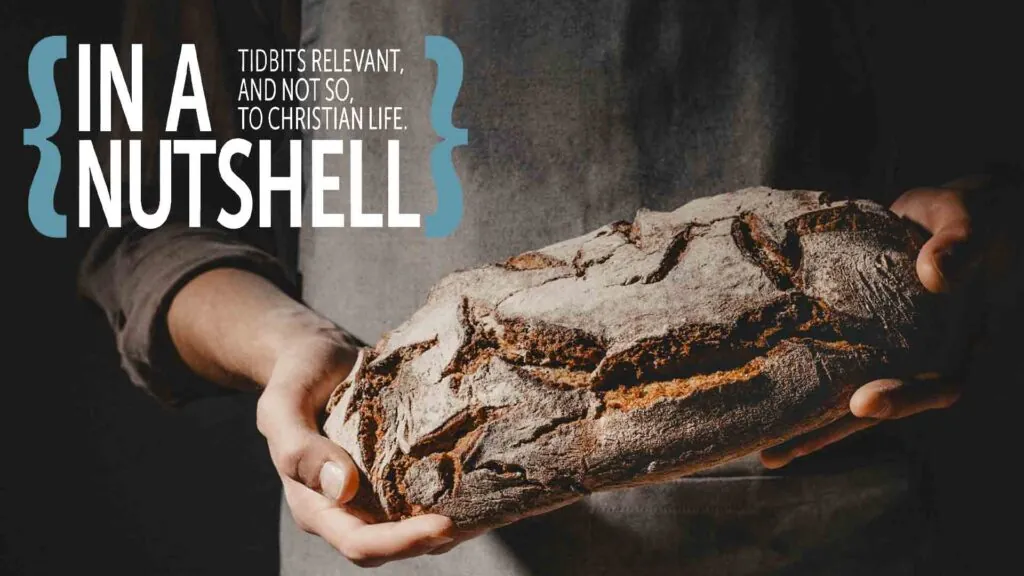Are you passing the baton?
“My dad….made a great commitment in my life and had given me many things to pass on. His father had given him things to pass on. And what I have, I have passed on. You have to take it, develop it, learn it, and pass it on to somebody else. This is a relay race, and we are all involved.”
– John MacArthur on the importance of telling the next generation what we have learned about God.
Knowledge doesn’t save
“The devil is a better theologian than any of us and is a devil still.”
– A.W. Tozer.
A third way God’s name can be used in fiction
In a March 16, 2015 post titled “Fiction and the Third Commandment” Douglas Wilson continued a discussion that began in the February 2015 issue of Reformed Perspective. In that issue, I asked why so many Christian fiction authors have their characters taking God’s Name in vain. I argued that there were only two ways God allows us to use his Name.
God says we can use his Name to talk to Him. And we can also use his Name to talk about Him. That meant that a writer may not use God’s name simply because his heroine has stubbed a toe and he want the readers to understand that it really hurt.
In his post, Pastor Wilson noted that there is one more proper use Christian authors can make of God’s Name – an author can depict someone sinfully abusing God’s Name without being guilty of abusing it himself. As evidence, Wilson pointed to Christ’s parable of the Pharisee and the tax collector in Luke 18. Jesus tells us that both men were praying in the temple but whereas the tax collector was penitent the Pharisee prayed:
“God, I thank you that I am not like other men, extortioners, unjust, adulterers, or even like this tax collector.”
The Pharisee here is neither talking about God, nor talking to Him (bragging isn’t prayer) but rather is blaspheming God. What we have here, as Wilson notes, is a
“…fictional depiction [of] a high violation of the Third Commandment, committed by a character in a bit of prose composed by the Lord Jesus Himself.”
Since Christ does it, we can be sure that it is indeed permissible to depict characters taking God’s name in vain. If that strikes you as strange (and it did me) the key point to understand is that in Luke 18, while Jesus is depicting someone taking God’s Name in vain, his purpose is still to honor God’s Name.
This third use of God’s name is an easy thing to mess up, which is why Wilson concludes with a caution to writers who are considering making use of this third way: they need to carefully assess whether they are skilled enough to pull it off. This is not the sort of thing to fail in the attempt.
Don’t just think about it
“The smallest good deed is better than the greatest good intention.” – unknown
No need for false modesty
“Humility is not thinking less of yourself, but thinking of yourself less.”
– C.S. Lewis in Mere Christianity
The (honest) rich get rich by making us all wealthier
God told us not to covet, but there are many, particularly in the government, who want to assure us it’s fine to demand what the rich have. They tell us it’s only fair to make the one per cent pay way more because when we look over the fence at all they have we can’t help but notice that it is quite a lot. Sure, God told us to stop looking over the fence (Ex. 20:17), but the world insists that all this ogling is okay because our neighbor’s wealth, well, a lot of it is really ours in the first place. The way they tell the story there is only so much wealth to go around, so our rich neighbor could only become wealthy by taking from the poor folk like us. And it’s about time he gave some of it back.
That’s what they say …but as you might suspect, folks who tell us it is okay to do what God forbids often don’t have their facts straight. The truth of the matter is that, so long as our rich neighbor didn’t get their money from piracy, bank robbing or lobbying the government, he likely got his money by earning it. And if his money was earned, then this neighbor of ours didn’t take anything from anyone, but actually gave more than he got. As commentator John Stossel explains:
“It is instinctive to think of life as a zero-sum game – if I win, you lose. Politicians think that way because that’s how their world works. And lawyers who sue people think that way – you either win or you lose.
“But in business, you only win if you give your customers something they want. If you make a big profit, it doesn’t mean you took it from the customer. The customer voluntarily gave you his money. He felt he gained something too. It is why you get the weird double thank you moment when you buy anything. If you bought a cup of coffee this morning, you gave the cashier a buck, and she said, ‘Thank you.’ She gave you the coffee, and you said, ‘Thank you.’
“’Thank you.’ ‘Thank you.’
“Why both? Because you both felt you won.
“But that’s just not intuitive. It’s intuitive to think Bill Gates made $50 million because he took $50 million from other people. If that’s the case, how come there is so much more wealth in the world now with all these billionaires? They didn’t take a big piece of the pie. They baked lots of new pies and then took a big piece.”
An approved Christian pick-up line
“Hey baby, wanna come back to my place? My parents are home.”
Matthew Henry would have hated The Hunger Games
On the night that the author of Matthew Henry’s Commentary was robbed, he prayed a prayer that showed his understanding of just how blessed he was, and how, when it comes to harm, it is much better to receive than to give.
“I thank Thee first because I was never robbed before; second, because although they took my purse they did not take my life; third, although they took my all, it was not much; and fourth, because it was I who was robbed and not I who robbed.”
SOURCE: Chris Craig’s book “Becoming a Person of Prayer.” There is some question if this really is a quote from Henry. Wikiquotes says no, but several other sources, including Chris Craig’s book, say yes.
Now it all makes sense
Johannes Gutenberg is best known as the first man to print a Bible using movable metal type. But did you know he kept his metal letters in drawers, called cases, with all the capital letters stored in an upper case, and the small letters stored in a lower case? That is the reason that even today, capitals are known as “uppercase” and small letters as “lowercase.”
Add a word, ruin a Christian book
About a decade back, a meme circled the globe that had people tweeting famous Christian book titles with one-word additions that, had they been real, would have completely ruined the book. For example, C.S. Lewis’s Surprised by Joy became Surprised by Joy Riding. Other notables include:
- Till We Have Smiley Faces (C.S. Lewis)
- Dave Ramsey’s complete guide to money laundering
- Don’t Waste Your Life Reading (John Piper)
- The Silver Rocking Chair (C.S. Lewis)
- The Pilgrim’s Progressive (John Bunyan)
- Calvin Klein’s Institutes
- The Lion, the Witch, and the Locked Wardrobe (C.S. Lewis)
- Orthodoxy Schmorthodoxy (G.K. Chesterton)
- Strange Camp Fire (John MacArthur)
One title was actually improved with an addition; Joel Osteen’s Your Best Life Now became Your Best Life Isn’t Now.
“Okay then, if you cross this line…”
Two aged orthodox Anglican priests knelt side-by-side in the trendy new diocesan cathedral, waiting for their bishop’s Easter service to begin. It commenced with a lonely, eerie wisp of Tibetan bells wafting through the rafters. Then a chorus of plucked hand-harps took up the icy harmonies. After the bell ringers and harpists came a dancing troupe of near naked young men in red speedos, streamers flying from their wrists. Then something new – six women in purple robes shouldering a litter which bore a larger-than-life-sized Buddha. The bishop brought up the rear, her tresses plaited with white and red ribbons hanging from the edges of her mitre, her brocaded cassock matching the thurible in her hand.
One aged priest turned to the other and said, “Just one more thing, and I’m outta here!”
SOURCE: Abbreviated version of a joke on Tim Bayly’s blog baylyblog.com/blog/2013/10/silence-them
That silver lining
Father: “Well, son, with marks like these, at least we know you’re not cheating.”












